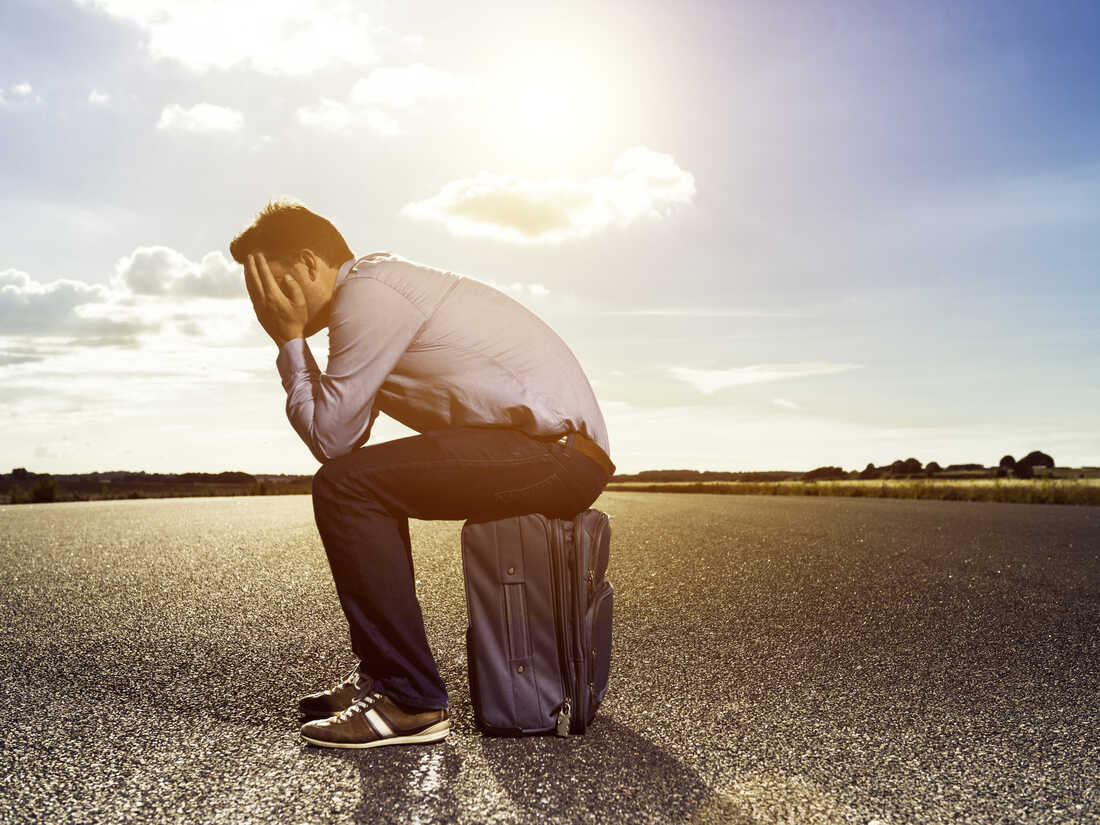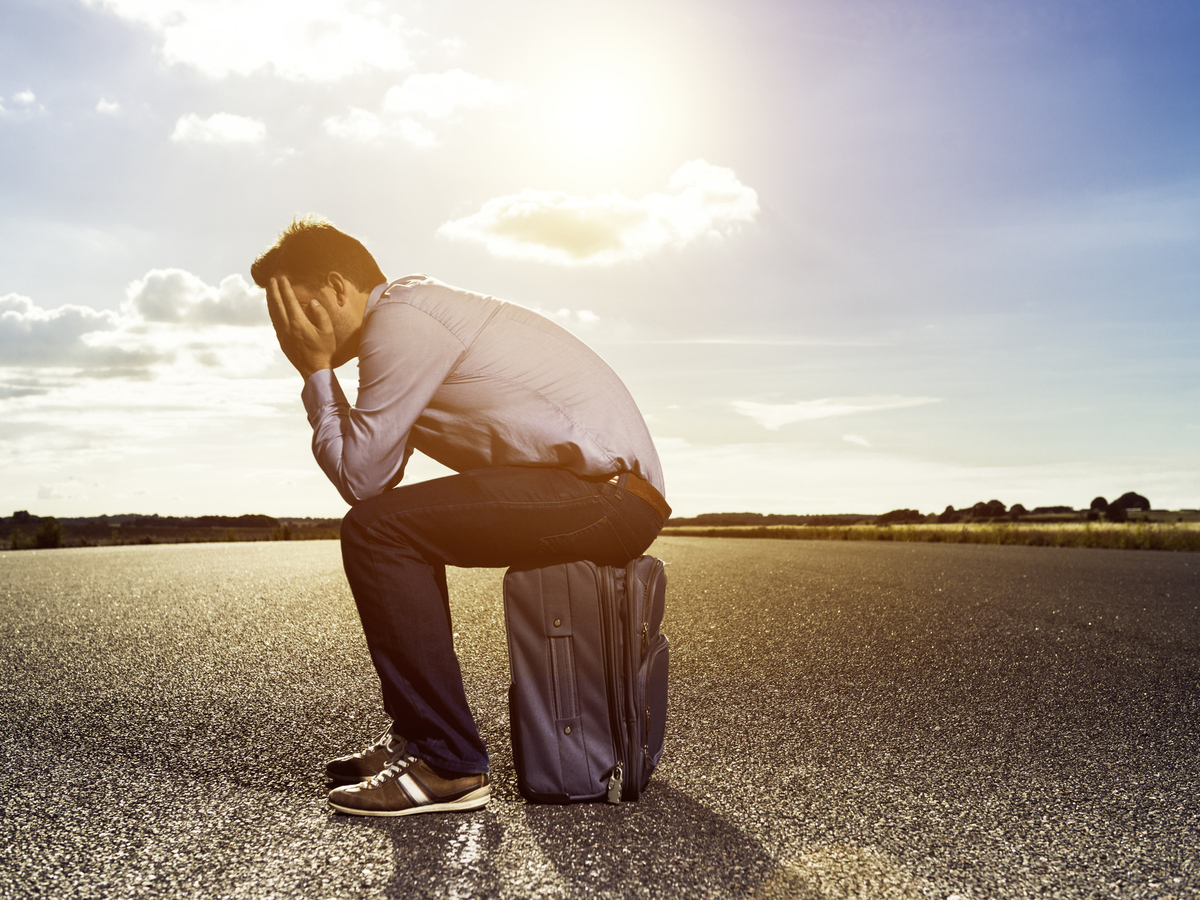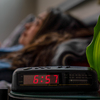
[ad_1]

mikkelwilliam/Getty Images

mikkelwilliam/Getty Images
If you are attempting to squeeze some journey into the previous few weeks of summer season, you may wish to get essentially the most out of your trip. And nothing ruins a visit to the Louvre or a scuba-diving tour like your physique telling you it is time for mattress NOW. So are you able to “hack” jet lag, so to talk? Or at the least mitigate it?
We posed the query to NPR’s International Desk and received an array of useful solutions from our globetrotting employees.
This story comes from NPR Health, a e-newsletter overlaying the science of wholesome residing. To get extra tales like this, click here to subscribe.
For occasion, NPR producer Greg Dixon is passionate about an app for jet lag known as Time Shifter. “You input your travel schedule and it spits out a plan for a couple days before and a couple days after your flights, advising you when to get/avoid natural light, drink coffee, take melatonin, etc.,” Greg writes. “It has worked really, really well.”
Research on jet lag is proscribed, and most of it’s on athletes, who — very similar to NPR’s journalists — are anticipated to jet throughout time zones and carry out at their finest. A current consensus statement to assist athletes handle jet lag and journey fatigue within the journal Sports Medicine, presents few guiding ideas.
David Stevens, a physiologist from Adelaide, Australia, who co-authored the assertion whereas working at a sleep analysis heart at Flinders University, breaks it down. First off, you may wish to perceive the workings of your physique’s circadian rhythms, that’s, our inner clock that tells us when it is time to go to sleep and when to get up.
Then you possibly can benefit from what sleep researchers name zeitgebers or time-givers, exterior elements that set the tempo of those rhythms. Light is a very powerful one however train, meals and even social cues also can set off sleepiness or wakefulness.
Get a head begin
Whether you employ an app or not, Stevens suggests beginning your time zone adjustment a number of days earlier than your journey begins. “One of your best strategies to prepare for any westward travel is you just go to sleep, for example, an hour later each night,” Stevens says. And go forward and permit your self to remain in mattress an hour later every morning as effectively.

Managing jet lag includes taking note of your gentle consumption and different cues to synch your inner clock to a brand new time zone.
Jenny Kane/AP
cover caption
toggle caption
Jenny Kane/AP

Managing jet lag includes taking note of your gentle consumption and different cues to synch your inner clock to a brand new time zone.
Jenny Kane/AP
Things get more durable if you’re heading eastward. “It’s brutal from west to east. It usually takes me 10 days to adjust, say from Washington to Tokyo,” writes NPR’s Asia editor Vincent Ni.
Stevens says there is a easy rationalization for this. Going to mattress later than regular – as you do when touring westward – is comparatively straightforward for our physique clocks to know, since you get extra drained within the night. “My body’s going, hang on, you’re meant to be asleep now, why aren’t you asleep?” he says.
But if you journey eastward, you must strive to fall asleep if you’re not but drained, and that is simply… complicated to your circadian clock, Stevens says. “The body’s going, hang on, you’re not meant to be asleep yet. What are you doing?” And to make issues worse, one of many physique’s peak efficiency occasions, once we’re naturally most alert, is round 7 p.m., he provides.
So in these instances, Stevens says, prep a number of days earlier than your journey by going to sleep sooner than regular and getting up early to soak up a lot of morning gentle.
Onboard sleep tips and aids
Stevens says it is a good suggestion to sleep on the flight in case you can, although the consensus assertion notes it is best to align your sleep with what can be evening in your metropolis of departure, so dozing off comes extra naturally. That can imply a nighttime flight is an efficient alternative.
Of course falling asleep in a decent airplane seat (in need of upgrading to enterprise class) will be almost inconceivable for a few of us. NPR’s Vincent Ni, nevertheless, has onboard shuteye right down to a science: “I fill my rucksack with solid but soft material, put it on the tray (in economy class) and lay my forehead on it. Key for me is the eyeshade and ear plugs.”
Now as you would possibly anticipate for a bunch of travel-hardened overseas correspondents, a number of International Desk members reported utilizing substances not naturally discovered within the physique.
“If I need to try to sleep on the flight (and it’s not super early in the morning – I’m not that bad) then I find a glass of wine or two is my sleep aid!” writes Beirut-based correspondent Ruth Sherlock. Others talked about taking prescription sedatives like zolpidem (Ambien) to nod off.
Stevens recommends towards prescription sedatives as a result of “it’s not really a physiological sleep,” and you may develop a dependency.
As for alcohol, Stevens says the brief reply is “no.” – it might disrupt sleep. Although he confesses on a current journey to London that he “may have had a pint as soon as I landed, but that was at about 4 o’clock in the afternoon,” In different phrases, a very good 6 hours earlier than bedtime.
Once you land: Manage your gentle consumption
If prepared your self into slumber earlier than the solar goes down is not understanding for you, that is no shock, says Stevens. That’s as a result of gentle is a very powerful of the zeitgebers or time-givers. “When light hits your retina, the signals travel through the brain, it goes to the hypothalamus,” which controls melatonin secretion, Stevens says. Melatonin is what makes you are feeling sleepy, and secretion does not begin till daylight begins to dim on the finish of the day.
Conversely, exposing your self to sunlight early within the day will be an effective way to assist sync your circadian clock to the brand new schedule. “In order to let my body adjust more quickly, I typically spend a lot of time outside in the full sunlight if I can (in warmer months) or in the sunlight inside (in colder months) to remind my body of the new surroundings and to let the melatonin flow,” writes Central Europe correspondent Rob Schmitz.
Stevens says taking a melatonin pill earlier than mattress, coupled with daylight publicity, can be an effective way to adapt to a brand new time zone. And remember to close off that blue gentle in your telephone, too.
Naps, meals and train
NPR’s deputy worldwide editor Nishant Dahiya and China correspondent John Ruwitch each swear by staying awake till 9 p.m. at your vacation spot – regardless of how cruddy you are feeling – and Stevens says that is a very good rule of thumb.
In reply to my anxious plea “Are naps allowed?!” Stevens says they are often helpful. “Naps can give you the little perk of energy that you need to then last an extra couple of hours.” The catch? He recommends capping your snooze at 20 minutes.
Dahiya additionally depends on “more than three espresso shots the next morning” to assist energy via sleeplessness. Stevens warns in case you do make use of caffeine, to be sure you drink it at the least 6 hours earlier than you propose to hit the hay.
Rather than chemical assist, Stevens recommends tapping into different zeitgebers – together with meals consumption, train, and temperature adjustments to regulate to a distinct time zone. “Every cell in our body also seems to follow a circadian pattern,” he says. So for instance “If you exercise at a particular time of day, and then you shift when you exercise,” in your new time zone that may be a circadian cue, he says. So can shifting your meal occasions.
“My favorite sleep aid is to go for a walk,” Stevens says. “Even if it’s just for an hour, even if it’s at night, I find going for a walk, getting a bit of fresh air, that just sort of clears your head,” he says.
Happy travels, and do tell us if any of the following pointers be just right for you. Write to us at shots@npr.org.
[adinserter block=”4″]
[ad_2]
Source link

